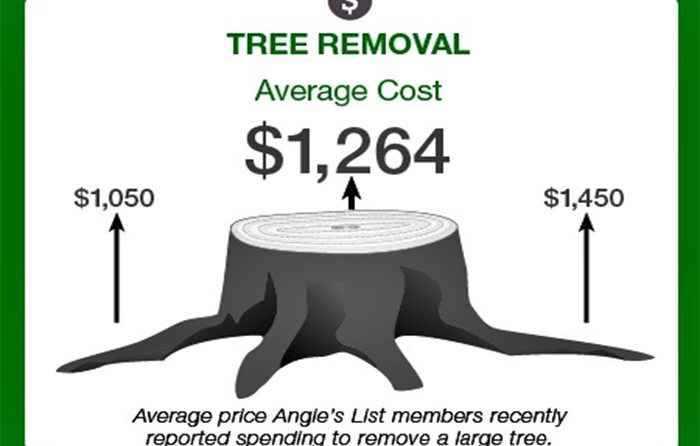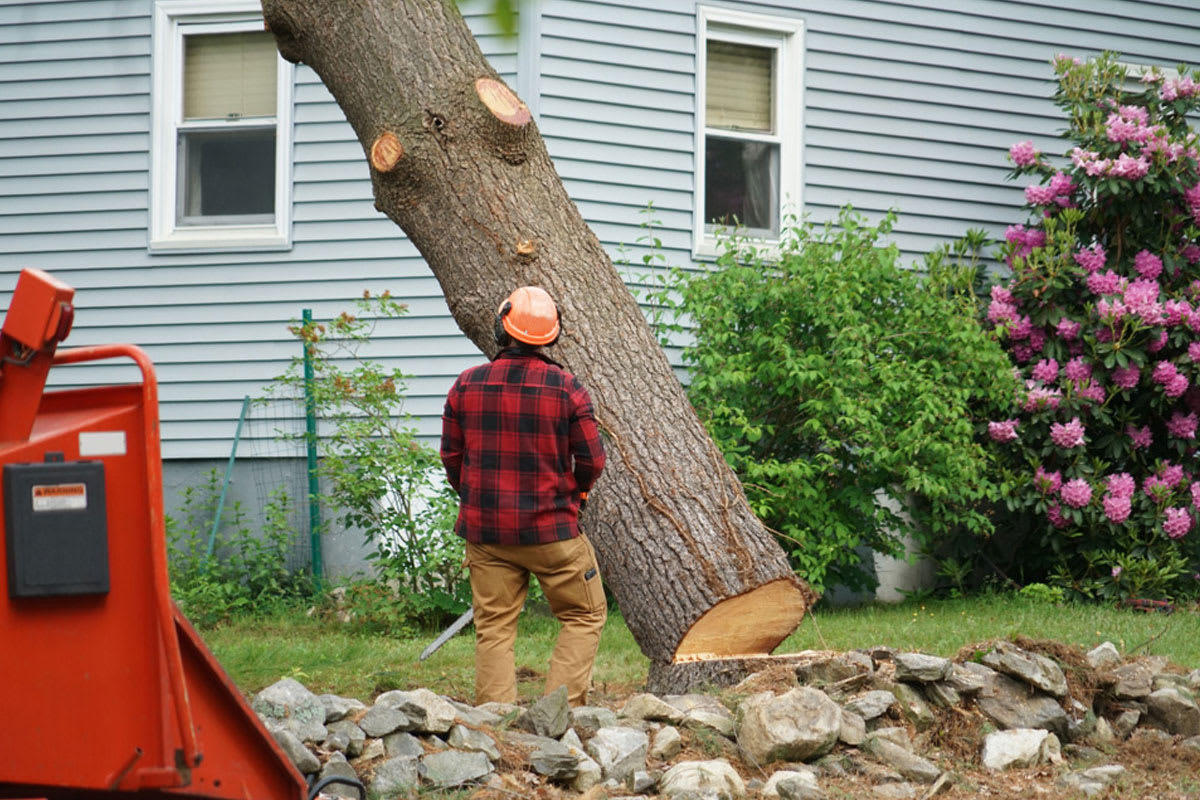Featured
Table of Contents
- – Webb City, MO Tree Clearing Evaluation Costs
- – Factors That Impact Tree Service Prices In Web...
- – Urgent Arborist Costs In Webb City, MO
- – Webb City, MO Tree Removal Warranties: What's...
- – Independent vs Chain Stump Removal Costs In W...
- – Budget-Friendly Stump Removal In Webb City, MO
- – Webb City, MO Tree Removal Referral Discounts
- – Webb City, MO Tree Service Reviews: What Loc...
- – Webb City, MO Area Tree Service Prices: Comp...
- – What Makes Webb City, MO Tree Clearing Expen...
- – What You'll Pay For An Tree Trimming In Webb...
- – Compare Arborist Estimates In Webb City, MO
- – Top 3 Money-Saving Tips On Tree Cutting In W...
- – Best Ways To Save On Tree Removal In Webb Ci...
- – Webb City, MO Stump Removal: Package Deals

The subsections listed below provide more detailed info about rates, including a typical variety for each. TypeAverage Removal CostPineConiferPalmMagnoliaArborvitaeAshCedarSweet GumEucalyptusSycamoreCypressOakMaplePoplar You can anticipate to pay between to remove a pine, depending upon its size. Eliminating a pine is one of the more budget friendly tasks unless it is one that has been around for several years and is rather big.
Webb City, MO Tree Clearing Evaluation Costs
Pines also have a tap root that grows deep into the soil, which can prove to be more hard to eliminate. The procedure itself includes an expert cutting the tree, clearing the base, cutting the surface roots, removing the stump, and finally dealing with the soil. Without a professional hand, you run the risk of leaving pine seedlings behind, which will fall from the roots of distressed pines.
Factors That Impact Tree Service Prices In Webb City, MO
The U.S. national average for conifer removal is around to have the conifer cut down, transported away, and the stump ground or removed completely. Conifers are typically simpler to get rid of, and despite the fact that they can grow rather high, they do not cost a fortune to remove. Conifers include pine, spruce, fir, and juniper trees.
Urgent Arborist Costs In Webb City, MO
While conifers are stunning, they eliminate native plants and specific types of lawn. This is since they require a lot of water and nutrients to survive, so they leach it off surrounding plants. They likewise have an extensive network of roots, which can impact your home's structure. The typical price of palm removal depends upon the height as much as the type, varying from.
Webb City, MO Tree Removal Warranties: What's Covered
That is why it is important to know which type you are eliminating. While you do not need an herbicide to eliminate a palm tree, there are some actions your elimination specialist will have to take to make sure the task is done correctly. There are two ways they can eliminate them: by slicing them down or digging them up.
Independent vs Chain Stump Removal Costs In Webb City, MO
From there, they remove the actual tree and then the stump. Anticipate to pay in between to remove this type of tree, depending on the specific size and details of the job.
Budget-Friendly Stump Removal In Webb City, MO
There are three types: green, white, and black ash. With its gray-tinged bark, its leaves are green or purple in the spring and golden yellow or purplish-red in the fall.
Webb City, MO Tree Removal Referral Discounts

Due to the variation in height, the removal cost variance is large from. A coniferous, evergreen tree, the cedar is a hardy types.
Webb City, MO Tree Service Reviews: What Locals Say
The development of false cedars differs from 50 feet up to 230 feet high. Homeowners may pay anywhere from, depending upon the roots. With star-shaped leaves and spectacular fall colors, the sweet gum is thought about a medium to large tree. Taking pleasure in full sun, the sweet gum can not endure contamination.
Webb City, MO Area Tree Service Prices: Complete Guide
It has a huge root base of 40 to 50 feet, which affects the removal expense. Generally, it costs between to remove a eucalyptus. Eucalyptus are not common everywhere, however they are rather big compared to others, which is why even the smaller sized ones are so costly to remove. Initially from Australia, eucalyptus are intrusive plants that grow in thick groves that secure native plants.
What Makes Webb City, MO Tree Clearing Expensive?
There are a handful of methods to do this, including burning, pulling, grinding, or killing them with herbicide. Expect to pay in between to eliminate sycamores, based on the height, trunk size, and quantity of work included. Sycamores are one of the biggest wood trees, typically varying from 60 to 100 feet high and as large as 15 feet.
What You'll Pay For An Tree Trimming In Webb City, MO
The first 2 steps will expose the within the tree and cut off the circulation of nutrients up the trunk. From there, an expert uses herbicide to eliminate the tree and cuts down the trunk. They will eliminate the stump. Otherwise, new sprouts may grow from it. Cutting down and eliminating a mature cypress could cost as much as.
Compare Arborist Estimates In Webb City, MO
There are several kinds of Cypress trees, but the most common are the Leyland, Arizona, Bald, and Italian. The Bald Cypress grows in swampy or really moist locations while the others take pleasure in a dry, warm, or hot environment (tree removal). They can grow as high as 80 to 100 feet high
Top 3 Money-Saving Tips On Tree Cutting In Webb City, MO

Prone to illness, the Cypress is among the most prized woods for furnishings. The typical oak grows to around 60 feet, and depending upon the intricacy of the removal, it costs an average of to get rid of. The specific size of your oak and the effort required to fell it affect what you will really spend for elimination in addition to any additional services like stump grinding.
Best Ways To Save On Tree Removal In Webb City, MO
Access to the trees and the roots will likewise affect the general cost. Maples can quickly mature to 100 feet or more and typically expense between to remove from your home. The final rate depends on the actual height and complexity of the job. Maples are generally amongst the more pricey trees to remove since of their size and the work associated with the elimination.
Webb City, MO Stump Removal: Package Deals
Poplars are giants of the types. Growing as high as 90 to 115 feet, these massive timbers are mainly discovered in The United States and Canada and consist of the aspen, cottonwood, and balsam trees. Boasting an expansive root system, poplars can be expensive to remove when completely grown. The process to eliminate trees involves all the trimming and cutting of the branches and trunk, bringing it down to a stump.
Table of Contents
- – Webb City, MO Tree Clearing Evaluation Costs
- – Factors That Impact Tree Service Prices In Web...
- – Urgent Arborist Costs In Webb City, MO
- – Webb City, MO Tree Removal Warranties: What's...
- – Independent vs Chain Stump Removal Costs In W...
- – Budget-Friendly Stump Removal In Webb City, MO
- – Webb City, MO Tree Removal Referral Discounts
- – Webb City, MO Tree Service Reviews: What Loc...
- – Webb City, MO Area Tree Service Prices: Comp...
- – What Makes Webb City, MO Tree Clearing Expen...
- – What You'll Pay For An Tree Trimming In Webb...
- – Compare Arborist Estimates In Webb City, MO
- – Top 3 Money-Saving Tips On Tree Cutting In W...
- – Best Ways To Save On Tree Removal In Webb Ci...
- – Webb City, MO Stump Removal: Package Deals
Latest Posts
Franconia, VA Tree Cutting Reviews: Costs
Fort Stewart, GA Tree Cutting Comparison: Pricing
Get Cheap Stump Grinding In Cottonwood, CA
More
Latest Posts
Franconia, VA Tree Cutting Reviews: Costs
Fort Stewart, GA Tree Cutting Comparison: Pricing
Get Cheap Stump Grinding In Cottonwood, CA